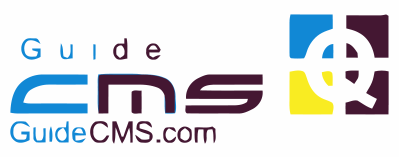
ArrowJS CMS is an open-source content management system (CMS) built on Node.js, designed for simplicity, modularity, and performance. Developed to aid in the creation of fast and scalable web applications, it leverages modern technologies like Express.js for route handling and Sequelize for database management with PostgreSQL. Here’s a comprehensive overview:
Core Technologies:
- Backend: The core of ArrowJS is powered by Node.js, an asynchronous JavaScript runtime, making it ideal for real-time applications requiring high request handling capabilities.
- Main Framework: Express.js handles HTTP routing, making it easy to create and organize web features.
- Database: Sequelize, an ORM for Node.js, manages data with PostgreSQL, and Redis is used for session management, enhancing performance and scalability.
- Templating: Nunjucks, a templating engine inspired by Jinja2, renders HTML pages, allowing for a clear separation of content and logic.
Founded:
ArrowJS was founded in 2015 by Tran Quoc Cuong and is maintained by a small developer community. It is primarily available through GitHub, where it receives regular updates and improvements.
Key Features:
- Modularity: ArrowJS follows a modular architecture, structuring code into distinct features (front-end and back-end), which can be developed independently.
- Clear Layer Separation: With distinct controllers and routes for both the back-office (administration) and front-office (visitors), ArrowJS simplifies development and maintenance.
- Multi-Database Support: Although PostgreSQL is preferred, other relational databases can be integrated.
- Modern Technology Compatibility: By using Node.js and Express, ArrowJS is well-suited for modern web development environments.
Pros:
- Performance: With Node.js, ArrowJS can handle a high volume of simultaneous requests, making it ideal for high-traffic websites.
- Modularity and Flexibility: Its modular structure makes it easy to add or remove features, a significant advantage for custom application development.
- Open Source: Being open-source, developers can tailor it to their specific needs while benefiting from community contributions.
- Simplicity: Its straightforward configuration and documentation aim to make it easy for developers with JavaScript and Node.js knowledge to adopt.
Cons:
- Incomplete Documentation: Although documentation exists, it can lack detail for advanced features, making it challenging for new users or complex projects.
- Smaller Community: Compared to more popular CMS platforms like WordPress or Joomla, ArrowJS has a smaller community, limiting available support and resources.
- Technology Dependencies: Its reliance on PostgreSQL and Redis as preferred technologies may be problematic for users accustomed to other databases like MySQL or MongoDB.
Conclusion:
ArrowJS is a powerful and lightweight solution for developers familiar with Node.js, looking for a modular and high-performance CMS. However, it may not be suitable for those seeking a plug-and-play solution with a large support community. Its flexibility and modular structure make it an appealing choice for custom web applications that require efficient content management.moins expérimentées.
Site web : http://arrowjs.github.io



